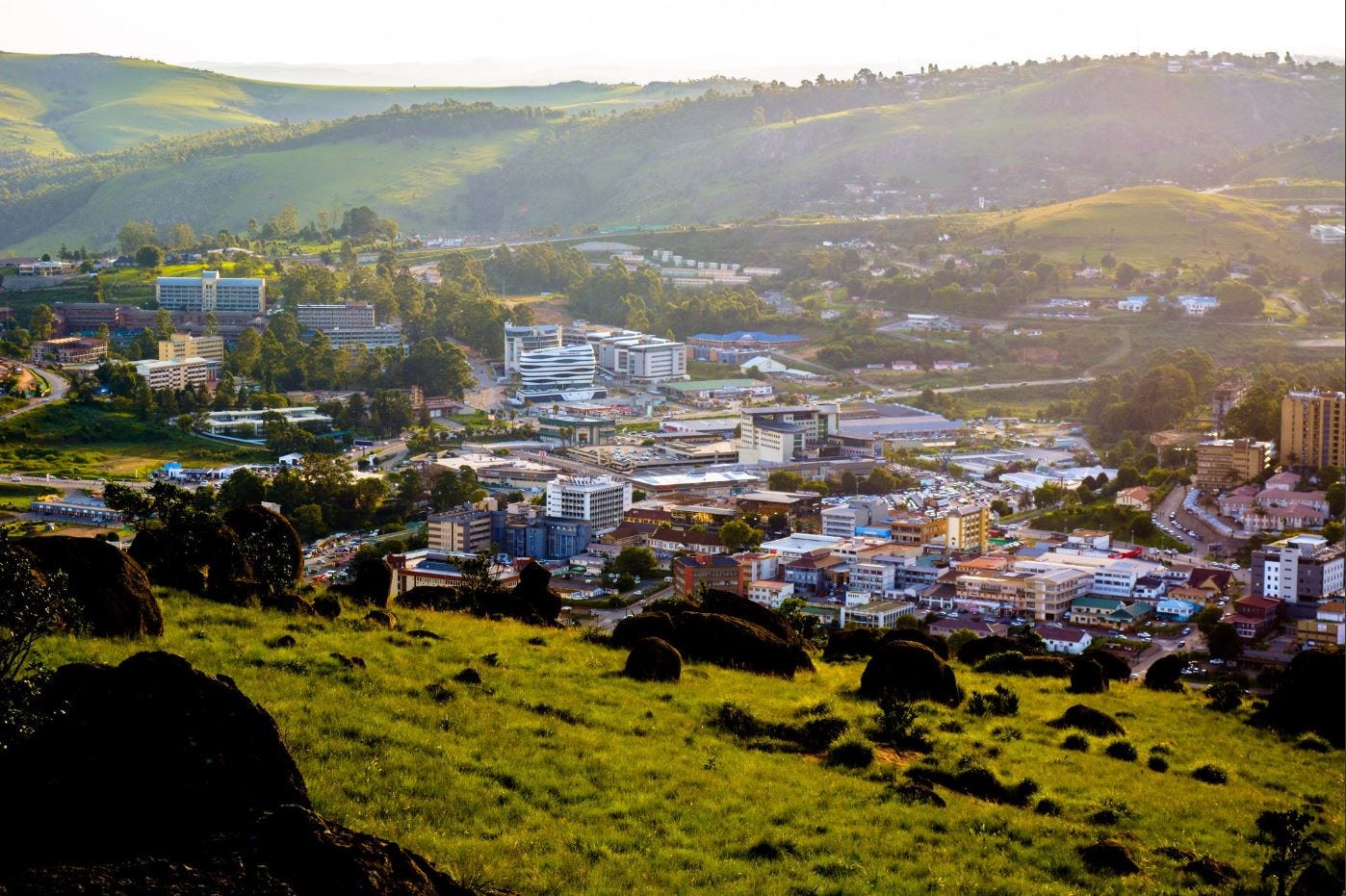🔅 From Sizzling Streets to Nursing Exodus
Heatwaves, Ballet Dreams, and Zimbabwe's Currency Makeover
Photo of the Day

Spotlight Stories
Africa's Heatwave: Sizzling Students and Sleepless Nights

February 2024 was the hottest on record, and Africa was sizzling like a steak on a barbecue. The southern cone was 4-5°C above average, while parts of west Africa experienced a heat-humidity combo that felt hotter than 60°C. Just last month, more than 100 people died in Mali because of an extreme heatwave.
While El Niño is partly to blame for the recent temperature spike, climate change has made these heatwaves ten times more likely.
To make matters worse, inequality is baked into the African heatwave experience. Slum dwellers in Nairobi, for instance, swelter in temperatures several degrees higher than those in leafy, affluent areas. And if you thought your bedroom was stuffy, try sleeping under a tin roof in a South African dwelling in the summer.
Even the workplace is no escape. The Lancet Countdown estimates that the average African worker loses 161 labour hours a year due to the sapping effects of heat, reducing their potential earnings by 4%.
But it's not just about the money – health is at risk too. Heat exposure is linked to a range of pregnancy complications, and a study in Burkina Faso found that for every extra degree of heat, mothers breastfeed for two fewer minutes a day.
So, what’s the solution?
Better buildings, greener cities, and shadier workplaces, for starters. Freetown, Sierra Leone, is leading the charge with a million new trees, sunshades in outdoor markets, and even reflective films on iron roofs that can reduce indoor temperatures by 6°C.
Also, let's not forget that 330 million Americans emit nearly six times as much carbon dioxide as all 1.2 billion sub-Saharan Africans combined. It's time for the world to not only help, but also to stop fuelling climate change in the first place.
The Nigerian Who Pirouetting His Way to Stardom
Anthony Madu, a 14-year-old Nigerian ballet dancer, is the subject of a new Disney+ documentary that's got everyone talking. This kid's story is so inspiring, it'll make you want to dust off your old ballet shoes and give it a twirl.
It all started a few years ago, when Anthony's dance teacher posted a video of him doing pirouettes barefoot in the rain in Lagos. The clip went viral faster than a TikTok challenge, and before he knew it, Anthony was on his way to the U.K. to attend the prestigious Elmhurst Ballet School.
But it wasn't all pas de deux and standing ovations. Anthony faced some serious challenges along the way, like being bullied for his love of ballet and discovering he was largely blind in his right eye.
Despite the setbacks, Anthony never lost sight of his dream. He persevered, and through life's struggles, Anthony learned to dance for himself, not just to impress others. His message to viewers? "Never give up." With his resilience, determination, and killer moves, Anthony is proof that you can pirouette your way to success, no matter where you come from.
The Great Nursing Migration: A Modern-Day Colonialism?

Wealthy countries have taken to wooing nurses from the less affluent parts of the world to fill their gaping healthcare voids. This seduction has sparked outrage and been branded a "new form of colonialism" by nursing leaders. These affluent countries, in their quest to staff their hospitals, have been picking the best medics from developing nations without a thought to the consequences left behind.
It has led some to cry out in frustration:
They spotligh the ethical quandary this mass migration creates, as richer nations bolster their healthcare rosters at the expense of weaker health systems elsewhere.
Back in the homelands of these sought-after nurses, the impact is palpable. Countries like the Gambia watch helplessly as their experienced caregivers pack up for greener pastures, leaving behind a skeleton crew to man the health fortresses.
The arithmetic of this loss is stark, with the Gambia operating at less than a nurse per thousand people, a sharp contrast to the UK's ratio.
This imbalance raises critical questions about the sustainability and morality of such recruitment practices. Even though the remittances from abroad are a silver lining, they hardly compensate for the weakening of homegrown health systems, struggling to do more with less.
Zimbabwe's New Central Bank Boss Says "Goodbye" to Trillion-Dollar Bills, "Hello" to ZiG

John Mushayavanhu, Zimbabwe's freshly minted central bank governor, has stepped up to the plate with a mission that's about as daunting as convincing a toddler to eat their vegetables.
His goal? To restore credibility to the central bank.
In his first move as governor, Mushayavanhu decided to introduce a shiny new currency called ZiG. According to the governor, ZiG is a "structured unit" backed by a basket of metals and foreign exchange, with a heavy emphasis on gold.
Mushayavanhu also set a new benchmark interest rate at 20%. Now, before you start thinking that's high, keep in mind that the last one was an amazing 130%.
Food for Thought
“When you befriend a chief, remember that he sits on a rope."
— Ugandan Proverb



The article on climate change is both pedestrian and telling. You point out the fact that Africa is facing climate change not of its making , possibly true, but then highlight the USA's contribution to this problem. Also some possible truth to that again BUT you don't mention that C.C.P. China dwarfs the combined climate assault of everyone else in the whole world by many times.
Strange that we know there is man made change, that we know Africa can't stop or fix it but we don't know who the single biggest contributor to the problem is.
Not good journalism but more importantly dishonest story telling.